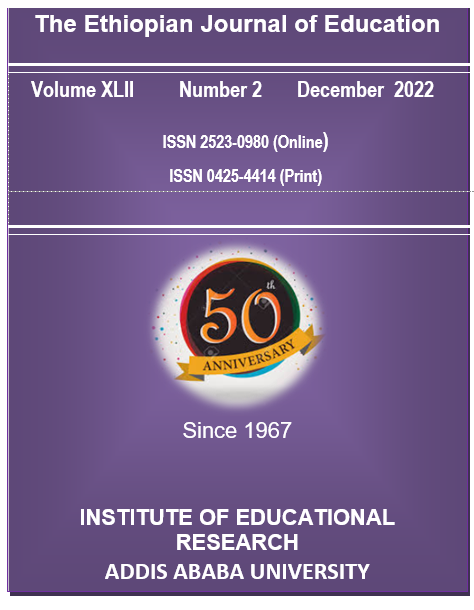Implementation of Active Learning in Selected Secondary Schools of Oromiya Region and Addis Ababa City Administration: An Examination of Congruence between Theories and Practices
DOI:
https://doi.org/10.20372/eje.v42i2.4244Keywords:
Active learning, Constructivism, Critical theory, Curriculum development, the Paradigm shiftAbstract
This study examines the congruence between the theories and practices of active learning concerning its implementation in a few selected subjects. Accordingly, four specific research questions were raised. The study used the basic qualitative study method. Curriculum materials, teachers, curriculum experts, documents, teacher education experts, and school improvement program experts were data sources. By using available, purposive, and snowball sampling techniques, the study selected 39 teachers, four vice directors, eight university instructors, five experts, and two teacher education experts from the Federal Ministry of Education and five textbooks. Data were collected using interviews, observation, and document analysis. The collected data were analyzed using the constant comparative method of data analysis. The analysis showed that the research participants conceptualized learning in the positivist paradigm but tried to implement active learning (the result of different theories), without making a paradigm shift. Most teachers used teaching rather than letting the learners learn; i.e., implying that power is not properly shared between students and teachers in the design, implementation, and evaluation of the curriculum. In other words, curriculum materials are content-focused and alien to the students' lives; exams and assessments were meant only for decision-making (pass and failed) rather than letting students learn and develop. The study recommended that to alleviate the problems, trainers, teacher education institutions, and concerned parties need to help their respective trainees develop modern perspectives and the associated practices thereof.
